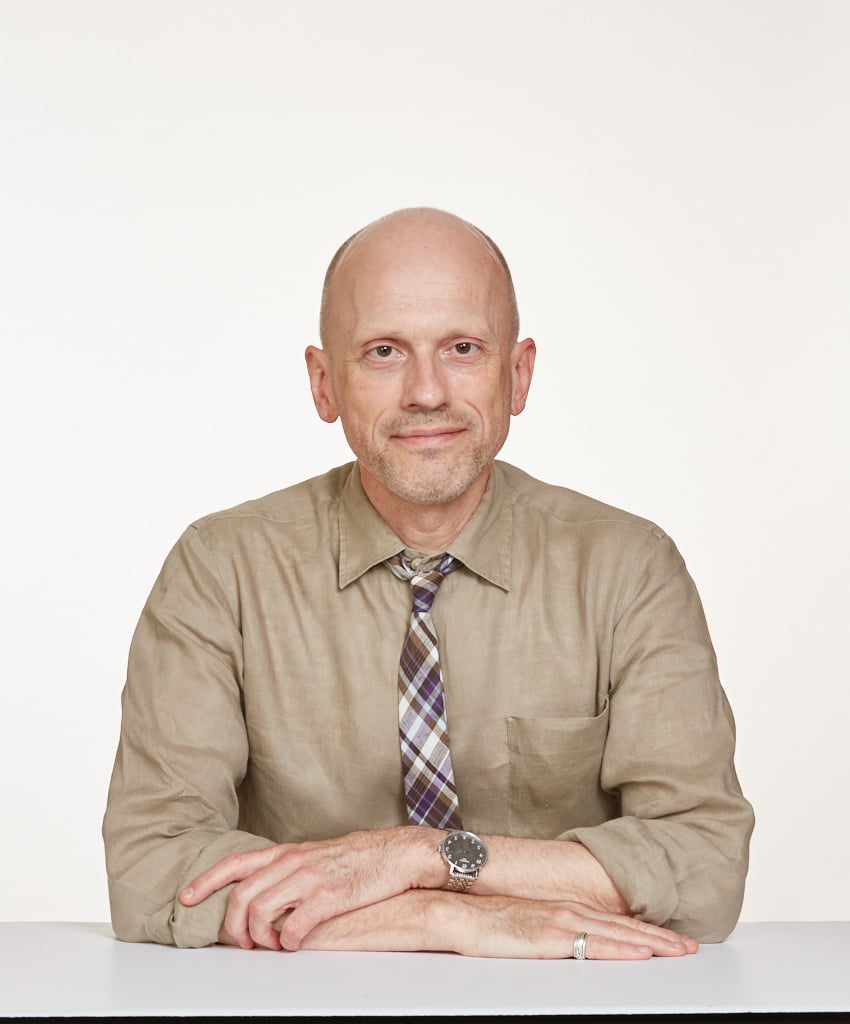Washington could use more narcissists. So says DC psychoanalyst and anthropologist Michael Maccoby, author of a book coming next month titled The Productive Narcissist: The Promise and Perils of Visionary Leadership.
Maccoby–whose book looks at leaders in a variety of fields, from Martha Stewart to Bill Gates–doesn't mean everyday self-centered types but those who conform to Freud's definition.
"Narcissists are not tied to the past and have to create their own sense of meaning and right and wrong," Maccoby says. They're innovative and charismatic.
But there's a key to being a productive narcissist: "strategic intelligence, which makes the difference between those who sustain the vision and those who don't."
Weaknesses include competitiveness and sensitivity to criticism. Bill Clinton embodies the narcissist's best and worst.
Maccoby calls George W. Bush a marketing personality, a term coined by psychoanalyst Erich Fromm.
"These people are attuned to being what the public wants," he says. "They gather around them people who give them their ideas."
Bush also has an "erotic" side–a Freudian term that refers to love, not sex. "This comes out when he's supporting the military or caring about the victims of 9/11," Maccoby says.
Vice President Dick Cheney, he adds, is a mix of obsessive–self-reliant and conscientious–and marketing. Secretary of State Colin Powell is an obsessive, as is Senate minority leader Tom Daschle.
Maccoby says new Senate majority leader Bill Frist, a heart surgeon, is probably a productive obsessive, with a secondary "erotic" or caring side. "The best physicians are productive obsessives," he says. "They have to be very concerned and careful."
As for Frist's leadership potential, Maccoby says, "The weakness of this personality tends to be that they're not facilitators like, say, George W. Bush. They're more people who analyze things and come to conclusions of what's right, as opposed to what works."
And Frist's predecessor, Trent Lott?
"Lott's a real marketing personality. He's a cheerleader, and he got into trouble giving the wrong cheer."
WHAT ELSE IS NEW
SECRET EMPIRE: EISENHOWER, THE CIA, and the Hidden Story of America's Space Espionage by Philip Taubman–a New York Times editor–tells the recently declassified history of the first supersonic spy planes and satellites.
In Wild Bill: The Legend and Life of William O. Douglas, Bruce Allen Murphy claims the former Supreme Court justice lied about his life in his writings.
The Killer Strain: Anthrax and a Government Caught Sleeping is a look at the post-9/11 scare by Washington Post writer and editor Marilyn W. Thompson.
Carolyn Forché, who teaches at George Mason University, has a new poetry collection, The Blue Hour.
KEEP AN EYE OUT
In april, SANDRA DAY O'CONNOR talks in The Majesty of the Law: Reflections of a Supreme Court Justice.
A Look Over My Shoulder: A Life in the Central Intelligence Agency is Richard Helms's autobiography. The head of the agency from 1966 to 1973 died in October.
Annapolis author Iris Krasnow's Surrendering to Yourself: You Are Your Own Soul Mate is a self-help book for baby boomers. Her previous books are Surrendering to Marriage and Surrendering to Motherhood.
Falling Up: How a Redneck Helped Invent Political Consulting is Democratic consultant Raymond D. Strother's memoir, with stories of Bill and Hillary, Al Gore, James Carville, and Gary Hart.
Former New York representative Robert Mrazek publishes his second Civil War novel, Unholy Fire, set in and around Washington. His first, Stonewall's Gold, won the Michael Shaara Award.
April brings two first novels: Thief of Words, a middle-age love story by Silver Spring's John Jaffe, and That Faith, That Trust, That Love by Alexandria lawyer-turned-writer Jamellah Ellis, about three generations of African-American women.
Another fiction debut follows in May: Amanda Bright@Home by DC's Danielle Crittenden, about a working woman turned stay-at-home mom.
That same month, Air Force One: A History of the Presidents and Their Planes by U.S. News White House correspondent Kenneth T. Walsh arrives.
CNN regular Margaret Carlson covers the political and the personal in Anyone Can Grow Up: How George Bush and I Made It to the White House.
CIA veteran Milt Bearden and local New York Times reporter James Risen have written The Main Enemy: The Inside Story of the CIA's Final Showdown With the KGB. It covers the Cold War's last years.
Caroline Kennedy gives us A Patriot's Handbook: Songs, Poems, Stories, and Speeches Celebrating the Land We Love. Selections range from Ronald Reagan to Bruce Springsteen.
IN CASE YOU MISSED THEM
Some recent small-press novels with local settings:
Barbara Lockhart's Requiem for a Summer Cottage explores a family on the Eastern Shore, where the author lives.
Chevy Chase novelist Ann McLaughlin's latest is The House on Q Street, about a young girl and her family in the District during World War II.
Borrowed Light by DC writer Lisa Schamess is about a gay Washington architect looking back at the end of his life.
IN THE WORKS
Arlington's EDWARD P. JONES, whose 1992 story collection, Lost in the City, looked at black life in DC, has signed a two-book deal–for The Known World, a novel about slavery in antebellum Virginia, and another collection, mostly set in Washington. Lost in the City will be reissued in September to coincide with the novel.
Former HUD Secretary Andrew Cuomo is editing a collection of essays on what's gone wrong for Democrats and what the next election looks like; contributors include Bill Clinton. It's scheduled for a quick-turnaround fall publication.
ALL ABOUT THE IRISH
Georgetown university english professor George O'Brien, a native of Ireland, has books to recommend for St. Patrick's Day. O'Brien's own work includes the memoir The Village of Longing.
Blood-Dark Track: A Family History by Joseph O'Neill. "One of the author's grandfathers was in the Irish Republican Army, and the other, who was Turkish, was imprisoned by the British in Palestine. This book reconstructs their lives and times, while meditating movingly on violence and secrets."
The Blackwater Lightship by Colm Tóibín. "In this novel, three generations of a splintered family are brought together by the imminent death of the youngest member from AIDS. A subtle, understated picture of life in Ireland."
The Springs of Affection: Stories of Dublin by Maeve Brennan. "The recent rediscovery of the author–a New Yorker contributor in the 1960s–is one of the literary world's truly good deeds. Set among middle-class families at midcentury, these stories are marvels of emotional insight."
The Burning of Bridget Cleary: A True Story by Angela Bourke. "Witchcraft and murder in 19th-century rural Ireland. An absorbing work of cultural history."
"YOU'VE GOTTA READ THIS"
DONNA BRITT, WASHINGTON POST columnist, suggests When Pigasso Met Mootisse by Nina Laden. "Our seven-year-old loves this. It details the rivalry between the young pig Pigasso, whose paintings are all cubes and angles, and Mootisse, a bull famed for his color-splashed work. My husband and I also found Leonard Cohen's lovely poem Dance Me to the End of Love, which happens to be illustrated with Matisse's work."
Bishop John Chane, Episcopal Bishop of Washington, suggests The Next Christendom: The Coming of Global Christianity by Philip Jenkins. "This looks at the impact Christianity's growth will have on the stability of countries, especially in the Third World. Anybody concerned about the impact of 9/11 and the rise of radical Islamic thought should give it attention, as it relates to Christianity's own metamorphosis."
CAN'T BEAT THAT PRICE
How far would you go to browse through thousands of free used books? If the answer is an hour's drive, check out the Book Thing of Baltimore (2645 N. Charles St.). There's no catch–the books are free. The nonprofit is run by Russell Wattenberg, who explains on his Web site (www.bookthing.org): "I figure that if everyone reads a lot there'll be more people to have intelligent conversations with." The Book Thing is open Saturdays and Sundays from 9 to 6.
George W. Bush is a marketing personality–he relies on others' ideas. Tom Daschle is an obsessive–self-reliant and conscientious. Dick Cheney is a mix. Bill Clinton exhibits the narcissist's best and worst. Trent Lott shares Bush's type. Like many doctors, Bill Frist is an obsessive.

















